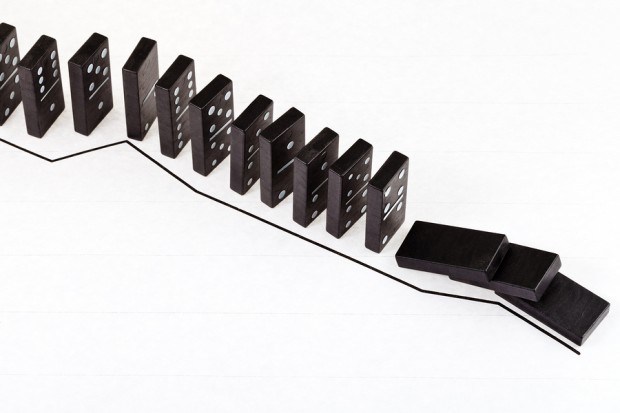Investment funds that manage more than $100 billion in assets may be labeled too big to fail, global regulators said, as they seek to expand financial safeguards beyond banks and insurers.
Hedge funds with trading activities exceeding a set value of $400 billion to $600 billion would also be assessed by national authorities to gauge whether they need extra rules because their collapse could spark a crisis, the Financial Stability Board (FSB) said in a statement Wednesday.
The report addresses “the risks to global financial stability and economic stability posed by the disorderly failure of financial institutions other than banks and insurers,” Mark Carney, Bank of England governor and FSB chairman, said in the statement. “They are integral to solving the problem of financial institutions that are too big to fail.”
The FSB, which brings together regulators and central bankers from the Group of 20 nations, is ranking banks and insurers by their potential to cause a global meltdown and demanding bigger financial cushions to avert a repeat of the 2008 credit freeze. Industrial & Commercial Bank of China Ltd., the world’s most profitable lender, was added to the FSB’s list of too-big-to-fail banks in November. Insurers such as American International Group Inc. and Allianz SE were deemed systemically important in July.
Systemic Risk
“Unlike banks and insurance companies, asset managers do not invest on a principal basis and do not take on balance-sheet risk,” said Dan Waters, managing director of ICI Global, a worldwide lobby group for the fund-management industry.
“Regulated funds and their managers have not been and are highly unlikely to be a source of systemic risk,” Waters added.
Finance companies that provide business funding, personal loans, store credit and car loans may also be considered crucial for stability because of the “potential difficulty of substituting certain types of finance to the real economy that they provide,” the FSB said in the report, which was produced with the International Organization of Securities Commissions, a Madrid-based group of supervisors from more than 100 countries.
Broker Dealers
As much as 80 percent of all assets outside of the banking and insurance industries are in the hands of such finance companies, broker-dealers and investment funds, according to the FSB.
While Wednesday’s report proposes how to classify companies as systemically important, the FSB said possible measures to defuse the risks they pose to the financial system will be taken at a later stage.
“The FSB approach puts the cart before the horse,” Michael Wainwright, a lawyer for Eversheds LLP in London, said in an email. “You need to have a clear idea of how a large fund could create systemic risk and what can usefully be done to manage that risk before you can decide which funds are so large that they require additional regulation.”
The board, based in Basel, Switzerland, said it will seek opinions on its proposals until April 7.





















 State Farm Mutual to Pay $5B Dividend to Auto Insurance Customers
State Farm Mutual to Pay $5B Dividend to Auto Insurance Customers  Machine Learning for Mutuals: What’s Working, What’s Not, and What’s Next
Machine Learning for Mutuals: What’s Working, What’s Not, and What’s Next  From Skill to System: The Next Chapter in Insurance Claims Negotiation
From Skill to System: The Next Chapter in Insurance Claims Negotiation  Is Risk the Main Ingredient in Ultra-Processed Food?
Is Risk the Main Ingredient in Ultra-Processed Food? 
